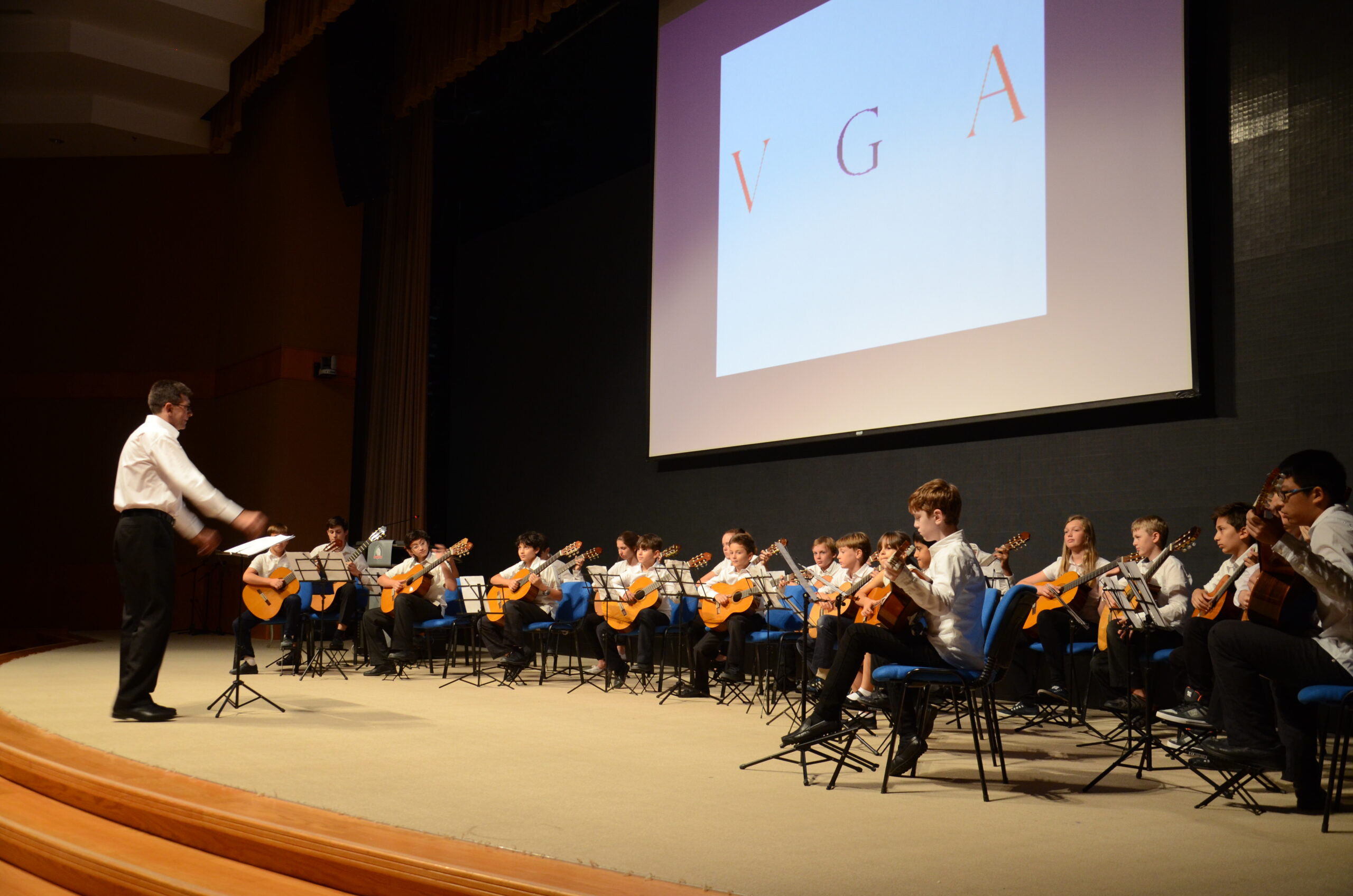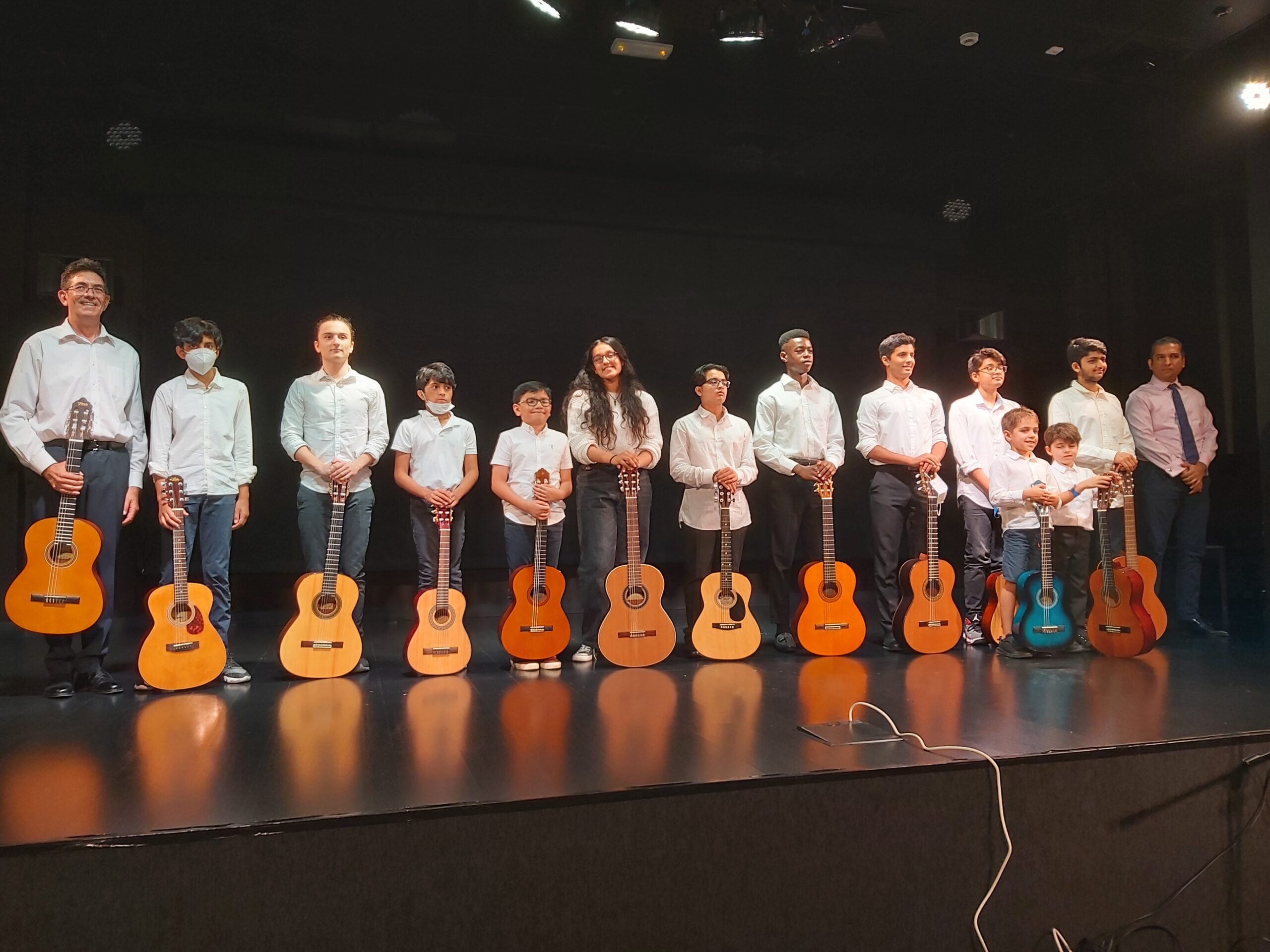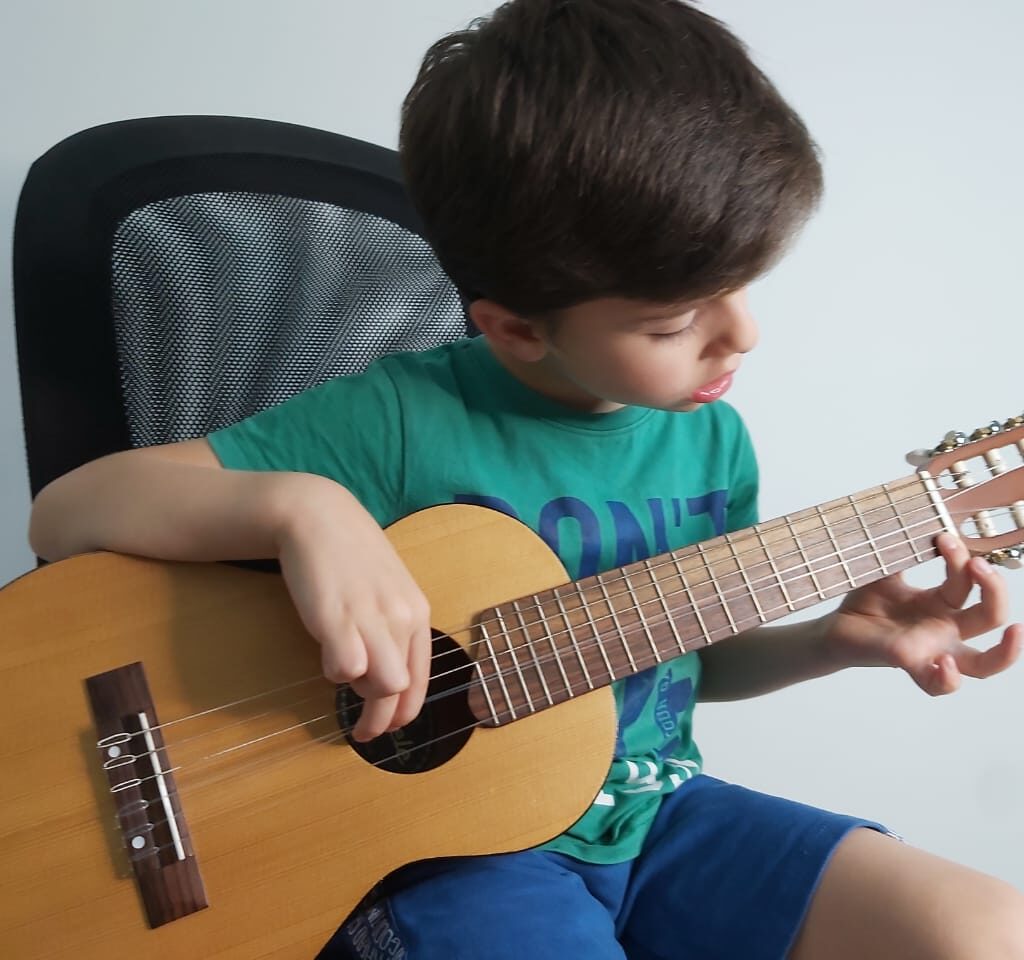Guitar Lessons in Dubai – a Legacy of Excellence
Teaching guitar with commitment and dedication

Guitar lessons in Dubai with Valentin Spasov. Gain expert guidance in classical guitar, technique, music theory, and performance. Moreover, start your journey with structured lessons that build skill, confidence, and musicality.
To become a skilled classical guitarist, lessons cover all essential areas: music theory, aural training, guitar technique, sight-reading, ensemble playing, board exam preparation, and student recitals. In addition, this approach develops technical skill, musical understanding, and performance confidence.
Music Theory for Classical Guitar Students
Understanding music theory helps students interpret rhythm, harmony, and melody. Furthermore, it strengthens sight-reading and therefore enhances expressive performance for beginners, children, and advanced learners alike.
Guitar Technique & Skills for Beginners and Advanced Students
Develop precision and expression with fingerpicking, dynamics, scales, and tone control. Consequently, proper technique is essential for classical guitar growth and long-term artistry.
Sight-Reading and Aural Training for Guitarists in Dubai
Sight-reading improves your ability to play new pieces fluently and builds confidence. Additionally, aural training develops pitch recognition, rhythm accuracy, and expressive performance, which enhances both learning and interpretation of music.
Ensemble Playing – Guitar classes in Dubai
Duets, ensembles, or guitar orchestras improve timing, listening, and musical communication. Moreover, students gain teamwork skills and enjoy a more dynamic learning experience while building confidence on stage.
Guitar Lessons provide Board Examination Preparation
Structured exam preparation provides motivation, technical benchmarks, and internationally recognized certification. Therefore, students gain discipline, track progress, and advance confidently in classical guitar. My Lessons fully support guitar exams for Associated Board of Royal Schools of Music (ABRSM), Trinity College London (TCL), As well as Music Teachers Board (MTB).
Online & In-Person Guitar Lessons in Dubai
Take lessons online from anywhere or in-person in Dubai. Moreover, all lessons focus on building strong technique, musicality, and confidence.
Guitar Recitals – Perform with Confidence
Recitals build stage presence, reduce performance anxiety, and provide valuable experience. In addition, students showcase progress, collaborate with others, and celebrate achievements in a supportive environment.
The End Result
Together, these elements contribute significantly to a classical guitarist’s growth and development. They build technical proficiency, deepen musical understanding, and enhance performance skills. This comprehensive approach transforms students into skilled, confident performers who can interpret and communicate music with clarity and emotional depth, achieving their full potential.
Resources & Teaching Approach
A wide range of teaching materials and methods support students of all ages, from children starting at age 5 to advanced learners. Additionally, I design my lessons to be engaging, structured, and tailored to each student’s needs.
Guitar Recitals
- Collaborate with fellow guitarists.
- Showcase your progress.
- Experience the stage.


Start guitar lessons at age 5.
- Early Motor Skills: Develop coordination and dexterity
- Musical Foundation: Strengthen knowledge of music basics
- Cognitive Growth: Enhance memory, focus, and creativity
“Learning guitar builds discipline, patience, and creativity—skills that empower you to achieve any goal.”

Valentin Spasov
Guitar teacher
If you have any questions or would like to discuss your guitar progress and goals, please don’t hesitate to get in touch. I’m always here to help!